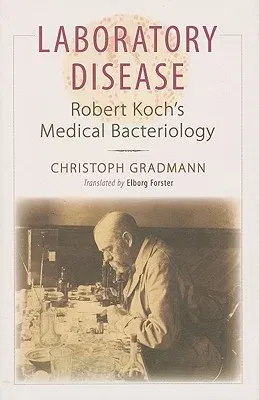In the nineteenth century, the new field of medical bacteriology
identified microorganisms and explained how they spread disease. This
book interweaves the history of this discipline and the biography of one
of its founders, Nobel Prize-winning German physician Robert Koch
(1843-1910).
Koch contributed to modern medicine by inventing or improving
fundamental techniques such as bacterial staining, solid culture media,
mass pure cultures, and the use of animal models. His discoveries, which
dominated medical science at the turn of the last century, are
epitomized in a set of rules named after him. "Koch's Postulates" are
still invoked today in attempts to prove the causal involvement of
pathogens in infectious diseases.
In a double history, Christoph Gradmann narrates the development of a
discipline and the biography of a scientist. Drawing on Koch's extensive
laboratory notes, Gradmann details how Koch developed his scientific
method and discovered the bacterial causes of anthrax, tuberculosis, and
cholera. Koch tried to bring this knowledge to clinical medicine by
developing medicines that would specifically target the bacterial
pathogens he identified. And Koch's passion for personal travel
developed into a career signature, as he became a pioneer in the study
of tropical diseases.
A fascinating look into Koch's personality and his experimental work in
medical bacteriology, Laboratory Disease reveals both the biographical
and the historical roots of our modern understanding of infectious
diseases.

